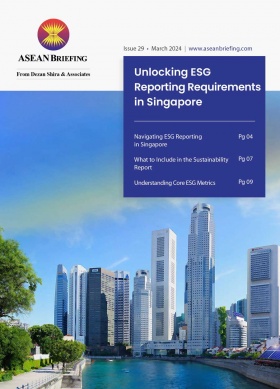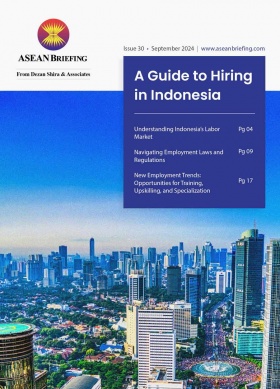Navigating Data Protection Laws in ASEAN-6: A Guide for Foreign Investors
The rise of the digital economy in Southeast Asia has brought data protection to the forefront of legal and business discussions. The ASEAN-6—comprising Indonesia, Malaysia, the Philippines, Singapore, Thailand, and Vietnam—are shaping their data protection frameworks to address both global standards and regional needs. With the increase in cross-border trade, e-commerce, and digital services, each of these nations is strengthening its regulatory approach to secure personal data, protect user privacy, and enhance consumer trust.
Indonesia
Indonesia’s enactment of Law No. 27 of 2022 on Personal Data Protection (PDP Law) in October 2022 marked a significant advancement in the nation’s data protection landscape. This legislation consolidates previously fragmented regulations into a unified framework, drawing inspiration from the European Union’s General Data Protection Regulation (GDPR) to ensure comprehensive protection of personal data.
Key stakeholders under the PDP Law include:
- Personal Data Subjects: Individuals to whom the personal data pertains, endowed with rights concerning their data.
- Personal Data Controllers: Entities or individuals that determine the purposes and means of processing personal data.
- Personal Data Processors: Parties that process personal data on behalf of controllers.
- Data Protection Officers (DPOs): Appointed to oversee data protection strategies and ensure compliance.
The law grants data subjects several rights, including:
- Right to be Informed: Awareness of who is processing their data and for what purpose.
- Right to Rectification: Ability to correct inaccuracies in their data.
- Right to Access: Obtain access to their personal data and supplementary information.
- Right to Erasure and Restriction of Processing: Terminate the processing or request deletion of their data.
- Right Concerning Automated Decision-Making and Profiling: Object to decisions made solely on automated processing.
- Right to Object: Oppose the processing of their data.
- Right to Claim Compensation: Seek redress for damages resulting from data misuse.
- Right to Data Portability: Transfer their data across different services.
Non-compliance with the PDP Law can lead to substantial penalties. Administrative sanctions include written warnings, suspension of data processing activities, deletion or destruction of personal data, and fines up to 2 percent of annual revenue. Criminal sanctions may involve imprisonment up to six years and fines reaching six billion rupiah (approximately US$400,000).
The PDP Law applies to any entity processing personal data within Indonesia’s jurisdiction, as well as those outside the country that have legal implications within Indonesia or involve Indonesian citizens abroad. This extraterritorial scope ensures comprehensive protection of Indonesian citizens’ personal data, regardless of where the processing occurs.
Malaysia
In an era of escalating data breaches and cyber threats, Malaysia has taken decisive steps to strengthen its data protection framework. Recent amendments to the Personal Data Protection Act (PDPA) introduce several key changes that businesses must navigate to ensure compliance and safeguard personal data.
Appointment of data protection officers (DPOs): Businesses are now mandated to appoint a DPO responsible for overseeing data protection strategies and ensuring adherence to the law. This role serves as a central point of contact for data protection issues, promoting a structured approach to data security within organizations.
Expanded responsibilities for data processors: The revised PDPA extends obligations directly to data processors, not just data users (now referred to as data controllers). Data processors are required to comply with security standards, maintain accurate records of processing activities, and assist data controllers in fulfilling their obligations. Non-compliance can result in fines up to 1 million ringgit (approximately US$232,000) and/or imprisonment of up to three years.
Revised cross-border data transfer rules: Malaysia has abolished the previous “white-list” system that permitted data transfers to countries with deemed adequate data protection. Under the new regulations, data transfers to any country are permissible, provided certain safeguards—such as contractual clauses or binding corporate rules—are in place. This change offers businesses greater flexibility but necessitates additional measures to ensure compliance.
Mandatory data breach notifications: Organizations are now required to notify the Data Protection Commissioner and affected individuals of any data breaches within a specified timeframe. This mandate aims to enhance transparency and prompt actions to mitigate the impact of breaches. Failure to comply can lead to substantial penalties.
Increased penalties for non-compliance: The amendments introduce stricter penalties for breaches of data protection principles. Fines have increased to up to 1 million ringgit (US$224,000) and/or imprisonment of up to three years, serving as a strong deterrent against data breaches and underscoring the importance of robust data security measures.
These comprehensive changes to Malaysia’s PDPA signify a significant shift towards more stringent data protection regulations. Businesses operating within Malaysia must reassess their data protection practices, appoint dedicated officers, ensure compliance with cross-border data transfer rules, and prepare for potential breaches to avoid severe penalties.
Philippines
The Philippines’ primary data protection law is the Data Privacy Act of 2012 (Republic Act No. 10173). This comprehensive legislation safeguards personal data in government and private sector information systems, ensuring privacy while supporting the free flow of information.
The National Privacy Commission (NPC) oversees the implementation of this law. The NPC is an independent body responsible for ensuring compliance with international data protection standards, issuing guidelines and circulars, and addressing complaints related to data privacy breaches.
The Data Privacy Act applies to all forms of personal information, including sensitive personal information and privileged information. The scope covers both natural and juridical persons involved in data processing activities, whether within or outside the Philippines, as long as the data pertains to Filipino citizens or residents.
Key rights of data subjects include:
- The right to be informed.
- The right to access their data.
- The right to object to data processing.
- The right to data erasure or blocking.
- The right to data portability.
Data controllers and processors must adhere to the principles of transparency, legitimate purpose, and proportionality. Organizations must also implement security measures, such as organizational, physical, and technical safeguards, to protect personal data.
Recent updates have further strengthened the data protection framework. NPC Circular 2023-06 outlines updated security requirements for data processed by both public and private entities. Additionally, amendments to the Data Privacy Act address challenges posed by new technologies and evolving data practices, ensuring alignment with international standards.
Penalties for non-compliance include fines and imprisonment for offenses like unauthorized processing, accessing, or disclosing personal data.
Singapore
Singapore’s Personal Data Protection Act (PDPA), first enacted in 2012 and updated in 2020, governs the collection, use, and disclosure of personal data by organizations. The Act aims to protect individuals’ personal information while supporting legitimate business needs.
Key obligations under the PDPA include:
- Appointment of a data protection officer (DPO): To oversee compliance.
- Consent and notification: Organizations must inform individuals of data collection purposes and obtain consent.
- Purpose limitation: Data must be used only for specified purposes.
- Data breach notification: Significant breaches must be reported to the Personal Data Protection Commission (PDPC) and affected individuals.
- Retention and transfer limits: Data should not be kept longer than necessary and cross-border transfers must ensure equivalent protection.
The PDPA also supports a Do Not Call (DNC) Registry, allowing individuals to opt out of telemarketing.
Non-compliance can result in penalties up to S$1 million, enforced by the PDPC. By aligning with international standards, the PDPA ensures Singapore remains a trusted hub for data protection and digital innovation.
Thailand
Thailand’s Personal Data Protection Act (PDPA), enacted in 2019 and fully implemented on June 1, 2022, established a robust framework for protecting personal data. The PDPA applies to organizations processing personal data related to individuals in Thailand, regardless of where the organization is based. The law distinguishes between general personal data and sensitive data, such as health, biometric, and racial information.
Key provisions under the PDPA include:
- Consent requirement: Explicit consent is necessary for data collection, use, and disclosure, with limited exceptions.
- Data subject rights: Individuals have the right to be informed, access their data, rectify inaccuracies, withdraw consent, and request data erasure.
- Data breach notification: Organizations must promptly notify authorities and affected individuals of significant data breaches.
Recent updates to Thailand’s data protection framework include:
- Sub-regulations and guidelines: The Personal Data Protection Committee (PDPC) has issued detailed sub-regulations on data breach notifications, data subject rights, and cross-border data transfers to clarify compliance requirements.
- Sector-specific regulations: New rules for industries like telecommunications and credit bureaus provide additional protections tailored to sector-specific data handling practices.
- Enhanced enforcement: The PDPC has ramped up audits and inspections, prompting businesses to strengthen their data protection practices to avoid non-compliance penalties.
Penalties for violating the PDPA include fines of up to 5 million baht (US$146,820) and potential punitive damages.
Thailand’s PDPA and its recent updates reflect the country’s commitment to aligning with global data protection standards, fostering consumer trust, and ensuring that organizations uphold rigorous data privacy practices.
Vietnam
Vietnam’s data protection framework has seen significant advancements in recent years. The Personal Data Protection Decree (Decree No. 13/2023/ND-CP), effective from July 1, 2023, established the foundational rules for processing personal data. This decree introduced principles such as lawfulness, transparency, purpose limitation, and data minimization. Organizations are required to obtain explicit consent for data processing and implement robust security measures to protect personal data.
Key updates to Vietnam’s data protection framework include:
- Enhanced role of data protection officers (DPOs):
The Draft Law introduces stricter requirements for DPOs, mandating expertise in technology and legal aspects of personal data protection. This ensures organizations have qualified personnel overseeing data compliance. - Expansion of sensitive personal data:
The definition of sensitive personal data now includes land data, covering information on land users and ownership, reflecting the increasing complexity of personal data categories. - New data protection roles:
The Draft Law defines new entities such as Personal Data Protection Organizations and Data Protection Credit Rating Organizations, which will be critical in monitoring compliance and supporting the broader data protection ecosystem. - Data breach notifications:
Organizations must notify authorities of data breaches within 72 hours, ensuring swift action to mitigate risks.
Vietnam’s evolving data protection regulations signal its commitment to safeguarding personal data while fostering trust in its digital economy.
Actionable insights for foreign investors in ASEAN-6
Foreign investors entering the ASEAN-6 markets must prioritize robust data protection strategies to ensure compliance and maintain consumer trust. Each country’s data protection framework has unique requirements, such as appointing a Data Protection Officer DPO in Malaysia and Singapore, adhering to strict breach notification timelines in Indonesia and Thailand, and complying with evolving regulations in Vietnam.
To mitigate risks, investors should conduct regular audits of data handling practices, ensure contracts with third-party processors meet local standards, and implement cross-border data transfer safeguards, such as binding corporate rules or contractual clauses. Staying informed about upcoming regulations, such as Vietnam’s Draft Law on Personal Data Protection (effective 2026), will help anticipate compliance challenges. Partnering with local legal experts and maintaining a proactive approach to data protection will ensure business continuity and enhance credibility in these dynamic digital economies.
About Us
ASEAN Briefing is one of five regional publications under the Asia Briefing brand. It is supported by Dezan Shira & Associates, a pan-Asia, multi-disciplinary professional services firm that assists foreign investors throughout Asia, including through offices in Jakarta, Indonesia; Singapore; Hanoi, Ho Chi Minh City, and Da Nang in Vietnam; besides our practices in China, Hong Kong SAR, India, Italy, Germany, and USA. We also have partner firms in Malaysia, Bangladesh, the Philippines, Thailand, and Australia.
Please contact us at asean@dezshira.com or visit our website at www.dezshira.com and for a complimentary subscription to ASEAN Briefing’s content products, please click here.








